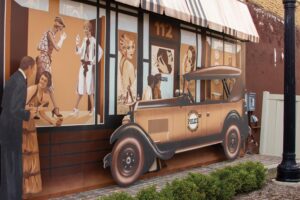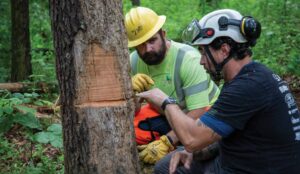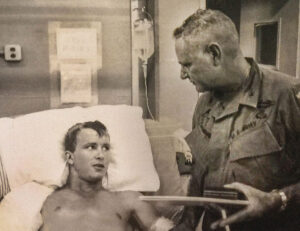
“If you’re gonna step out of that tank and walk into that house where you know you might be blown up, you gotta be tough, you gotta be strong, you gotta be ready-top of your game. When you go from that to literally not being able to brush your own teeth the next day, that’s a pretty long psychological fall. And, no one can see that by looking at you.”
– Ron Stephens
War. Only those who have actually participated in it, understand it. There’s nothing romantic about it. It’s ugly, heart-wrenching, and one hesitation or decision can literally cost you your life, or that of a fellow soldier. But, even when returning home, for many the war isn’t over. Whether physically wounded or not, it’s still running through veterans’ minds and the smallest, unexpected sounds or smells can take them back to the battlefield.
For 173rd Airborne Army Sergeant and former State Senator Ron Stephens, it was a long, tiresome and challenging journey. Stephens asked to be drafted after one of his classmates and lifelong friends, Billy Bane, was killed in Vietnam on his first mission as an Army helicopter pilot. At that time, Stephens was a college student with a draft deferment, but remembers vividly how that event changed his life. He recalls going to the recruitment center and turning in his deferment. He felt compelled to go to Vietnam, and three months later he got his wish–he was in the army.
On June 2, 1970, Sergeant Stephens was leading a patrol down a hillside to make contact with the enemy. Between the bottom of the hill and rice paddies, they encountered more Viet Cong than anyone expected. Havoc ensued. Stephens remembers being shot, lying face down in the dust, not able to get up, and preparing to die.
After waking at Walter Reed Army Medical Center in Bethesda, Md., oddly enough, his first thoughts were, “How are my guys? Did we get everybody out? Who’s in charge here because I need to get back out there.”
Stephens spent 18 months recuperating from wounds to his head, back, shoulder and hand. Once released, his battle wasn’t over. He was sure that someone from his unit had been killed by the rounds that hit him, but the army kept telling him it never happened and he needed to get over it.
“I thought I was crazy,” recalls Stephens. “I thought in the back of my mind that something was wrong with me, and I didn’t want to talk to anyone about it. I figured I was normal when I went into the army and, despite my activities, I’m normal now. Right? It’s normal to drink yourself to sleep at night, isn’t it? So I put it all in a box in my mind, and in my heart, and whenever that box got jostled a little bit, I would drink it back into its corner.”
The turning point for Stephens came almost 20 years later when he met some other veterans, who had been in Vietnam, and they started talking about their experiences. They could tell something wasn’t right and helped Stephens revisit some of those memories. It turns out his radio man, Joseph Michael Justus, was killed that day, but the army had him listed under the wrong unit. Stephens hadn’t imagined it!
However, there was guilt yet to be dealt with. He felt Justus died because of his actions. He had told Justus that, as his radio man, he should always be right behind him. The radio had broken, but Justus was where he had been told to be when Stephens was hit.
He was finally released from that guilt twenty-five years later when he found Justus’ sister, Peggy. After telling her his story, she said, “Has it ever occurred to you that Joe followed you, not because you told him to, but because he was just as brave as you?”
The relief was immediate. “I felt like the weight of the world was lifted from my shoulders,” remarks Stephens. “I had never considered that, and she was absolutely right. Even though the radio was broken, he followed me because he wanted to be there.” All of those pent up feelings compounded over 25 years were finally released.
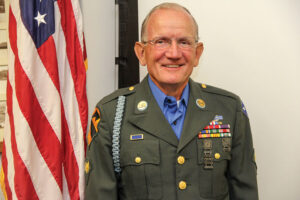
The journey to Vietnam was a different one for Pastor Kenneth Capps. He didn’t ask to go, but answered the call when it came. Capps was a Specialist 4th Class of Company A, 1st Battalion (Mechanized) 50th Infantry of the U.S. Army, based out of Fort Hood, Tx. He was intending to marry his sweetheart, Diana, but the army had different plans. About two months before the wedding, he received his deployment orders. Capps took an emergency leave, went home and married Diana and moved her to Killeen, Tx.
Before leaving for Vietnam, he received a letter of encouragement from a friend. Capps kept it in his Army-issued New Testament, in his shirt pocket right next to his heart until the day it was lost in the worst battle he encountered. The verse from Psalms, “A thousand shall fall at thy side, and ten thousand at thy right hand; but it shall not come nigh thee,” was a source of constant assurance to him on some of his darkest days. And there were many.
March 31, 1968, is a day etched in his mind. Having arrived in-country about seven months earlier, he had jumped from helicopters into rice paddies, dug fox holes in the swampy land, and seen many battles, but this time he received his first physical wound.
“While on a search and clear mission my company was exposed to enemy fire,” he says haltingly, as his eyes fill with tears. “My First Sergeant was wounded and would have been left behind if we didn’t go after him.” Kenneth Capps is possibly five-foot five, and 125 lbs., soaking wet, and his sergeant was more than six feet tall and 275 lbs. It was no small feat, but he and another soldier got it done. Since his wounds weren’t life-threatening, the shrapnel was removed and he was sent back to his company. Capps was awarded the Bronze Star and a Purple Heart for his heroism that day.
The second time was worse. After hearing about a build-up of enemy around their base camp the company was out on reconnaissance in “Sniper Alley” and was unknowingly being led into an ambush. For an entire day he recalls fighting in the sweltering 120 degree heat as his company was decimated. He could have returned with those rescuing the wounded, but he didn’t want to possibly take the seat of someone else. He joined C Company, a tank outfit, whose gunner was wounded. Capps had never been inside a tank, let alone fired from one, but he agreed.
If he thought it was hot outside, it was an oven inside the tank. Everyone had stripped off their shirts to try to get relief from the heat. While on guard duty he noticed movement in his night scope. About 15 minutes later the tank was hit with rockets and a round passed between Capps and others and killed the tank commander. Capps took shrapnel in his back, yet the verse from Psalm 7 went through his mind – “A thousand shall fall at thy side…” He lost his bible that day but not his life, the Lord had protected him yet again.
He received another Purple Heart and the Bronze Star with V Device for his extraordinary valor in close combat against an overwhelming number of enemy. And, there are many more medals. In all, he was in 12 major conflicts and was awarded 11 medals. But in humility he says, “These are nice, but they wouldn’t mean anything if I didn’t come back. I give God all the credit for his protection and mercy.”
After returning to civilian life, Capps focused on church, family, career and community. He has pastored Belknap Pentecostal Church for almost 18 years, and it has only been in the past year that he has been able to talk with his children about combat details and the medals he earned.
Although he has never been to the Vietnam Veterans Memorial in Washington, D.C., he has seen the traveling version and was moved to tears for the thousands who gave all. He says, “But for the grace of God, my name would have been there.”
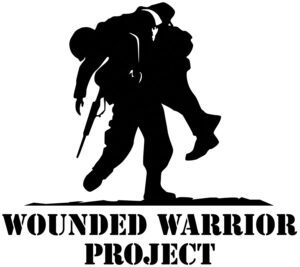
Wartime experiences are what helped compel Stephens, and Capps, through his church’s donations, to support the work of the Wounded Warrior Project (WWP). WWP, whose mission is to honor and empower Wounded Warriors, serves veterans and service members who incurred physical or mental injuries related to their service on or after September 11, 2001. Many patriots felt it was their duty to volunteer after the horrific events of that day.
With advancements in battlefield medicine and body armor, an unprecedented number are surviving injuries. It’s somewhat of a double-edged sword – many survive the battlefield only to return home and face an entirely different challenge – their psyche. According to a WWP survey of its alumni, 65.2 percent had a military experience that was so frightening, horrible, or upsetting that they had not been able to escape from the memories or effects of it.
In fact, WWP estimates as many as 400,000 soldiers are returning with the invisible wounds of combat-related stress, major depression and post-traumatic stress disorder. And, as many as 320,000 servicemen and women are believed to have experienced a traumatic brain injury.
The project takes a holistic approach, serving veterans and their families to find a new normal. WWP has a vast network of volunteers, many are former military, who welcome home these wounded warriors, sometimes at the airport and often at the hospital. They want them to know they are appreciated and someone is there for them.
Through his work as a pharmacist at Dale’s Southlake Pharmacy in Decatur, and its distributor Cardinal Distributing, Ron Stephens has been doing fundraising walks to benefit the Wounded Warrior Project for the past four years. He walks a mile for every $100 raised, and Cardinal Distributing matches it dollar for dollar. The first year, Stephens raised $4,000 and walked, flag in hand, from Decatur to Springfield. His wife, Lisa, followed in a vehicle with water and a place for him to sit and take a break.
The walks give him the opportunity to tell others about the Wounded Warrior Project, how it ensures that soldiers are welcomed back to America, and will help them with housing and education and workplace issues. And, how they can donate to the cause.
He chokes up when remembering a mother, and her two sons, standing and saluting him as he walked past their farmhouse. Stephens says that as he walks through towns and the countryside, he has his own “one man parade and every soldier deserves that. I kind of feel like I’m representing a lot of folks that didn’t get to experience that. It’s very emotional for me. To walk thru places with little welcoming committees cheering me on and tears running down my face, it means so much that our sacrifice meant something.”
Those donations, big and small, have totaled a quarter of million dollars in just four years. That’s a lot of miles for someone his age, but Lisa is always there to support him. From New Baden in southern Illinois to Elwood in the north, she is always by his side.
Stephens says, “War is unfair and hurtful. It is a tremendously courageous act to volunteer to go and fight. Then think about the unfairness when you’re hurt and not treated right when you come home. We don’t want to make those mistakes anymore; we learned from our experiences in World War II, Korea and Vietnam. With as good a job as the military and Veterans Administration do, they don’t do the best job. Wounded Warriors picks it up where they leave off.”
To learn more about the Wounded Warriors Project, go to www.woundedwarriorproject.org. There are chapters all across the country.





